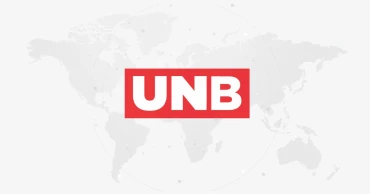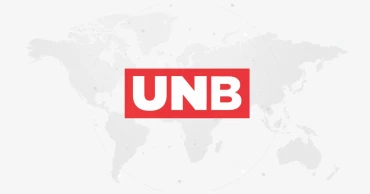lessons
The Enduring Lessons of Christmas: Embracing Kindness, Hope and Renewal
Christmas, celebrated worldwide, is more than just a festive occasion; it embodies profound teachings that resonate with millions. As we approach Christmas 2023, let us reflect on the invaluable lessons this sacred festival imparts, transcending mere celebration and highlighting values that enrich our lives and communities.
10 Lessons of Christmas
Love and Compassion
The essence of Christmas lies in Jesus' message of unconditional love and kindness. This festival urges us to extend our hearts in compassion and understanding towards everyone, especially those in need. It's a perfect opportunity to instill in young minds the importance of empathy, tolerance, and sharing. Christmas 2023 beckons us to embrace these virtues more than ever, fostering a world filled with kindness and care.
Read more: 5 Christmas Dinner Recipes for Bangladeshi Kitchen
Generosity and Giving
The tradition of exchanging gifts during Christmas symbolizes the spirit of generosity. It’s not confined to material presents but encompasses acts of kindness like inviting a lonely neighbor for a meal or donating to those less fortunate. Christmas 2023 is a reminder that the joy of giving is the essence of the festival, making the smallest gestures of kindness truly special.
2 years ago
Lessons of Qurbani: What does the Holy Eid-ul-Azha Sacrifice Teach Us?
Qurbani is an important religious practice for Muslims to demonstrate their devotion to Allah. In Islam, Qurbani means sacrificing something special, that is approved by religious laws, in Allah’s name for divine blessings.
Qurbani, also known as Eid-ul-Adha/ Eid-ul-Azha or the ‘Festival of Sacrifice’, honors the remarkable story of Prophet Ibrahim and his act of obedience to Allah, serving as a testament to faith and devotion in Islam. This holy occasion is celebrated annually by Muslims around the world, signifying unity, compassion, and willingness to make sacrifices for the sake of Allah.
9 Teachings of Qurbani in Eid-ul-Adha
This auspicious occasion remembers the unwavering faith and obedience of Prophet Ibrahim to Allah’s command. At the heart of this festival lies the act of Qurbani, which teaches us valuable lessons about faith, devotion, and selflessness. Let’s explore the profound lessons of Qurbani in Eid-ul-Adha.
Obedience to Allah
The story of Prophet Ibrahim teaches us that it’s most important to do what Allah asks us to do without questioning it. We should trust that Allah knows what’s best for us and have faith in His plans, even when things are tough.
Read more: Top 5 Eid-Ul-Azha, Animal Market Games for Android, iOS
Sacrifice and Selflessness
Qurbani teaches us about sacrifice and selflessness. It shows us that it’s important to let go of our own wants and think about what others need. During Eid-ul-Adha, we sacrifice an animal to understand the meaning of giving up something valuable for the benefit of others.
During Qurban Eid, when Muslims sacrifice animals, their main goal is to cleanse their souls and get rid of negative feelings like greed, resentment, and hatred. It’s a way for them to purify themselves spiritually and focus on kindness, generosity, and love toward others.
Gratitude and Thankfulness
When we participate in Qurbani, we are reminded of the many blessings given to us by Allah. It encourages us to be thankful for the abundance He provides us with, and helps us realize the importance of appreciating the blessings we have in our lives.
Compassion and Charity
Qurbani is about being kind and helping people who are in need. It teaches us that it’s important to share the blessings in our lives with others and give to those who don’t have as much as we do.
Read more: 10 Most Hyped Bangladeshi Movies Releasing on Eid-ul-Azha 2023
When we show compassion, we can offer comfort and inspiration to people near us and even far away. We have the power to give useful advice and guidance to those who need it, using our understanding and kindness, to make them feel better. We can share our good luck and love not just with our family and friends but also with strangers and those who need our help.
2 years ago
'Pakistan leadership can learn many lessons from Bangladesh'
Bangladesh has experienced significant economic transformation over the years, which can be attributed to its leadership, reads an article published in The Express Tribune.
Pakistan’s leadership can learn many lessons from Bangladesh’s experience, but the main takeaway should be that Prime Minister Sheikh Hasina prioritised economic growth, which is crucial for both defence and democracy, reads the article.
Sahibzada Riaz Noor in his article mentioned Prime Minister Sheikh Hasina inaugurated the Padma Bridge recently and declared it a ‘symbol of pride and capacity’.
As early as 1992, Sheikh Hasina was involved in the economic issues and plans for Bangladesh, according to the article titled "Takeaways from Bangladesh’s leadership." She undertook the task of balancing economic policies with political implications.
Sheikh Hasina learnt from other Asian countries whose economic success was based upon four pillars: political stability, social development, trade liberalisation with export-led growth and fiscal restraint, reads the article.
During a conference, when an economist began informing her about the benefits of trade liberalisation, Sheikh Hasina quipped, “you don’t have to convince me about trade liberalisation. When I was living with my physicist husband in the Italian city of Trieste on the Yugoslavian border, I watched the border being opened three times a week and people travelling across from both sides, purchasing goods and return.”
Read: Dhaka, Washington to follow up issues discussed over past few months
This demonstrates that Sheikh Hasina was assiduously focused on economics rather than other considerations that politicians are attracted to, Riaz Noor mentioned in his article.
Even though between 1971 to 2009, Bangladesh had hiccups in accountability campaigns and military rule, since 2009, the army has taken the back seat, he said. Bangladesh has seen less frequent derailment of civilian governments and experienced little legitimisation and delegitimization of governments.
Despite having little experience in governance, the Prime Minister possessed visionary acuity and conviction that economic progress was the only way to alleviate poverty in the country, reads the article.
Bangladesh has become one of the fastest-growing economies in the world and back in 1970, the country was 75% poorer compared to Pakistan but now it is 45% richer, the article reads.
In 1970, it had 10 million more mouths to feed but now its population is 170 million compared to Pakistan’s 230 million, according to the article.
In 2021, Bangladesh’s exports were $47 billion while Pakistan’s exports were $28 billion. The income per capita in Bangladesh is $2,227 compared to Pakistan’s $1,543.
In 2022, its gross domestic product (GDP) is $411 billion compared to the $347 billion in Pakistan.
The annual inflation rate is 6% compared to Pakistan’s previous 12-15%, which has now risen to 21% and is expected to further increase.
Also, the Bangladeshi taka is much stronger compared to the Pakistani rupee, reads the article.
Importantly, Bangladesh has a strong literacy rate with high female participation in the economy, it reads.
In Pakistan, political parties have remained interested in personal gains, according to the article.
The repeated manipulation of the democratic process has stymied the growth of strong, democratic, and non-dynastic parties, it reads.
It is worth recognising that economic growth is closely tied with political stability, rule of law, strong civilian institutions, and participatory democracy, the article reads.
3 years ago




